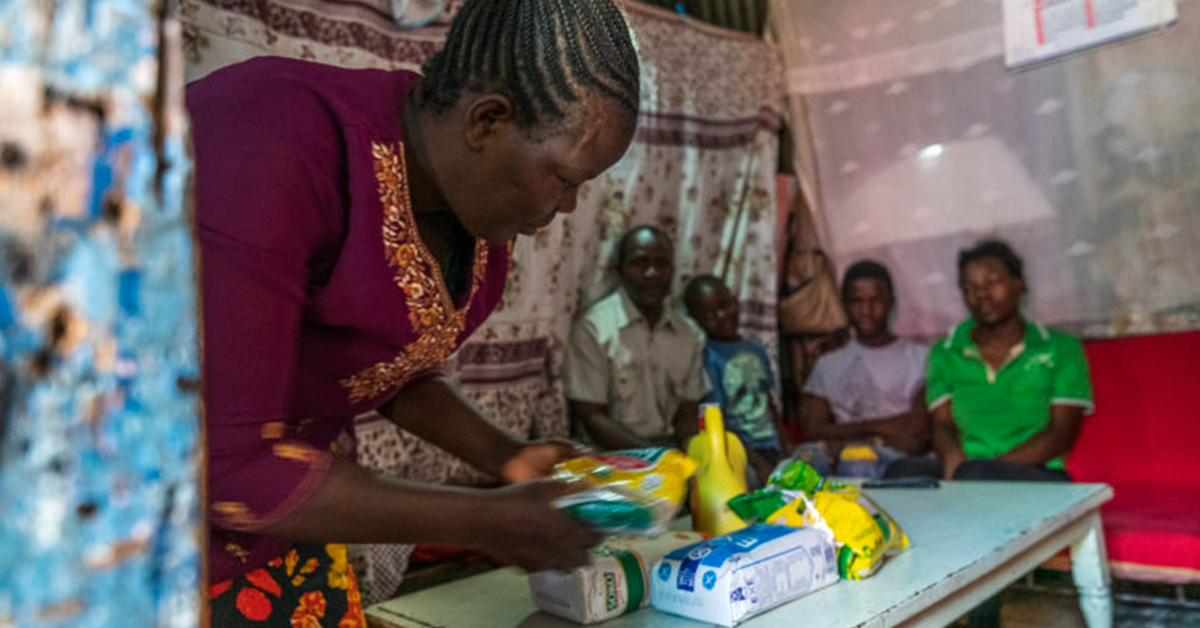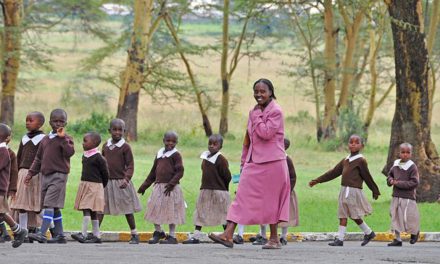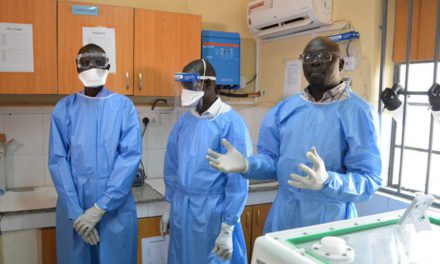
Compassion International Kenya Gives Ksh 70 Million To Help Cope With Covid-19

By Hillary Murani
As Kenyans braced for 30 more days behind closed doors, the loss of livelihood and lack of food continue to pressure them.
A recent survey by Compassion International Kenya revealed that one of the biggest impacts of COVID-19 indicated that the families particularly those that rely on the informal sector for their livelihoods, continue to be affected due to night-time curfews, lockdowns, secession of movements and cross border travel restrictions.
On this basis, CIK launched a cash transfer program distributing over ksh 70 million in the last two months to more than 67 000 families spread across the country.
Peter Wandera, a resident of Gatina slums in Dagoretti, expressed his frustrations for lack income in two without any hope of what the future holds.
“Before COVID-19 pandemic brought about a lot of restrictions, I can say we were jostling to get by. But right now, we are the ones being jostled by the situation,” he said. His predicaments are no different from the majority of the people across the globe.
Rosemary Asina from Vihiga County used to make porridge for an ECD class at a neighbouring school. When schools were closed her source of livelihood was cut short.
Her husband who is also a casual labourer could also not get any manual jobs because most people are at home and thus doing the manual work by themselves. Rosemary and her husband have six children looking up to them for their daily upkeep.
In light of this, Compassion International Kenya, a Christian organization that partners with churches to support holistic development of children and youth from low income families across Kenya, responded to the crisis by assisting more than 67,700 families including Wandera’s through a cash transfer program. Since direct food distribution was banned, the organization took advantage of mobile money cash transfer mechanism.
About 453 Church partners across the country identify the very needy cases in their community and enroll them into the cash transfer program. The approach is more effective because it provides families with cash to buy food, while avoiding massive gatherings that may fuel infection rates.
Senior Manager of Partnership for Compassion Kenya Newton Midamba, said that they intend to comply with the government’s directive even as they try to offer help to the affected families.
“We want to be compliant with the government’s social distancing guidelines. Distributing food at the projects across the country could promote the spread of the virus,” he said.
On the other hand, Compassion Kenya National Director, Joel Macharia, said the cash transfer approach dignifies families.
“Having families decide how to spend their money dignifies them. It provides them with a choice aligned with their preferences, as well as lifestyle,” he noted.
“We are therefore calling upon each one of us to extend a helping hand to the poor and those in need of support. Let us all be on the lookout to care for our neighbors so that we can go through this challenging period and emerge much better and stronger together,” Mr. Macharia added.
The total amount sent to families in the months from early April and May is Kshs 70,703,173 that has benefitted 67,752 families enrolled in the Child Sponsorship Program. Families will continue receiving the monthly support until they are able to get back on their feet after lifting of restrictions. According to the Kenya National Bureau of Statistics, the informal sector generated 83.6% of the total employment in Kenya in 2018.






















Recent Comments